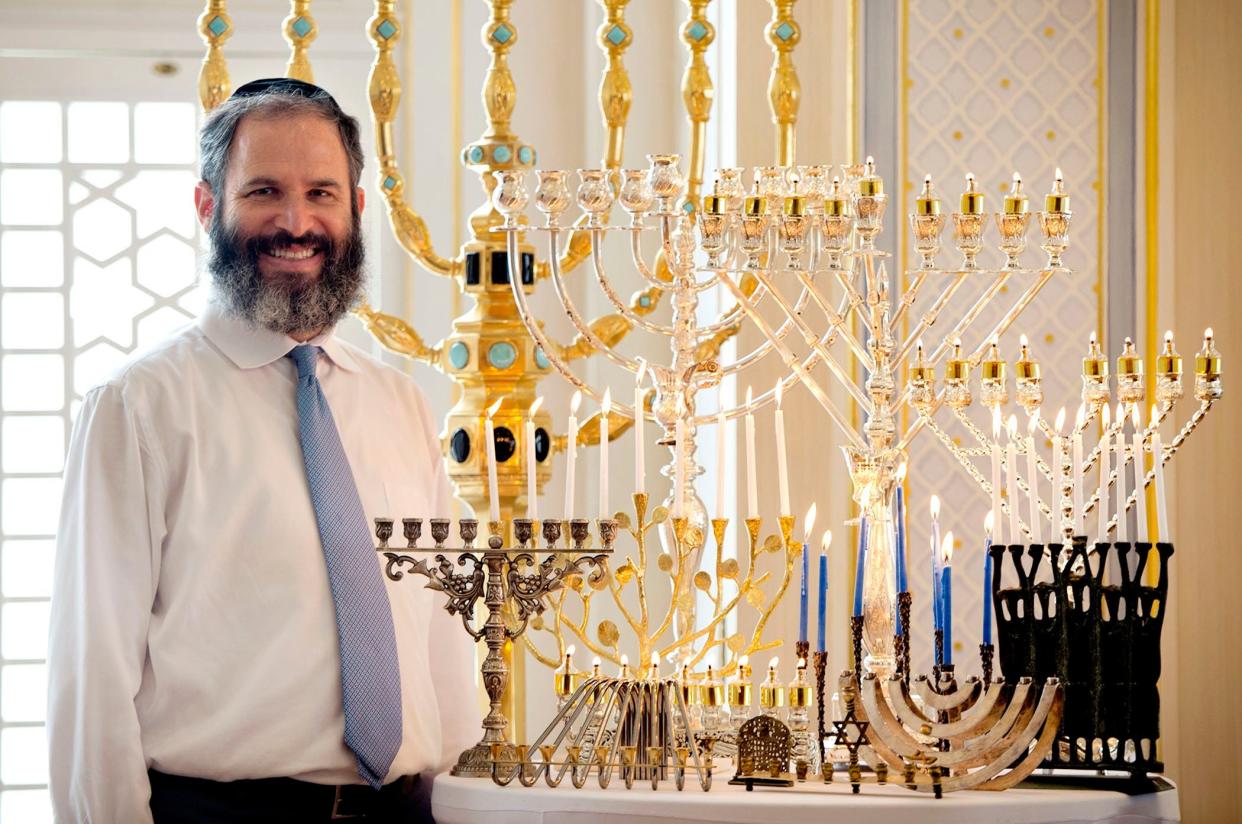Opinion: Hope or despair: Israel-Hamas was spurs questions for this year's Passover Seder

We have a tradition to ask four questions at the Passover Seder. The freedom to question is at the heart of liberty. It’s called free speech for a reason: Expressing the words of your soul sets you free.
During most Passovers, the story of the Exodus is told from a book called the Haggadah. This Passover, which begins Monday night, will be the first time in my lifetime that the citizens of Israel, the children of Israel, and all good people everywhere will ask the four questions from deep within our hearts.
Just a few miles from where our ancestors were enslaved in Egypt by Pharaoh some 3,336 years ago, 133 of Israel’s sons and daughters are enslaved in Gaza. These are some of the — way more than four — questions pulsating through our beings as we in the Jewish community prepare for the Passover Seder: What will their Seder look like? We know that they will taste the bread of affliction, but will they eat matzah, the bread of freedom whose main ingredient is innocence? We know that they taste maror, the bitter herb, but will it be dipped in charoset, the hope that helps turn despair into perseverance? Will they ask the four questions? Will they have the freedom to ask even one question?
Having just returned from Israel with 35 members of the Palm Beach Synagogue, we have witnessed firsthand the faith, hope, optimism, courage, resilience, strength, unity and love of the people of Israel in the face of evil, hate, darkness and terror.
This year, when we celebrate freedom, we will be celebrating the hope and promise of freedom. Despite our troubles and suffering, during this Passover, Jews around the world will return to the timeless wisdom of Jewish history that offers a holiday to remind us that our destiny is shaped not by our sorrows, but by the faith that in a moment something miraculous can happen that will bring us redemption and freedom. It has happened before, and it will happen again.
Having been chosen as one of Time‘s 100 Most Influential People of 2024, Rachel Goldberg-Polin, the mother of Hersh, shares her faith and wisdom with the world despite the unfathomable pain of a parent longing for a child held captive.
“Hope is mandatory,” she said, “I believe it, and I have to believe it, that he will come back to us.”
We will sit around the Passover Seder this year with prayers for all of those who are suffering in captivity. We will add chairs around the table for the hostages and invite those in need of encouragement to fill them in merit of their return. We will celebrate leaving Egypt by choosing hope over despair, faith over fear and good over evil once again, just as Jews have done in every generation.
Rabbi Moshe Scheiner is founding rabbi of Palm Beach Synagogue.
This article originally appeared on Palm Beach Post: Opinion: Four critical questions for this year's Passover Seder.

